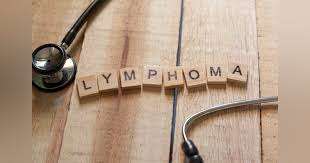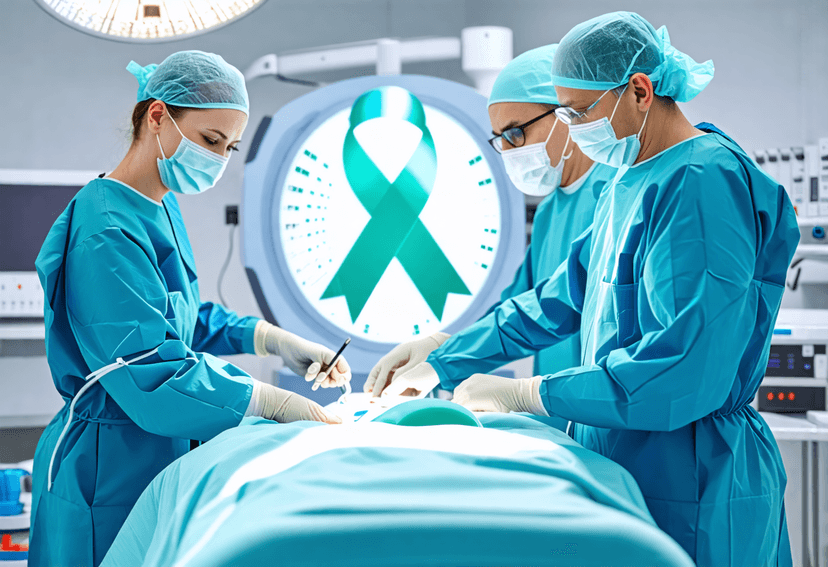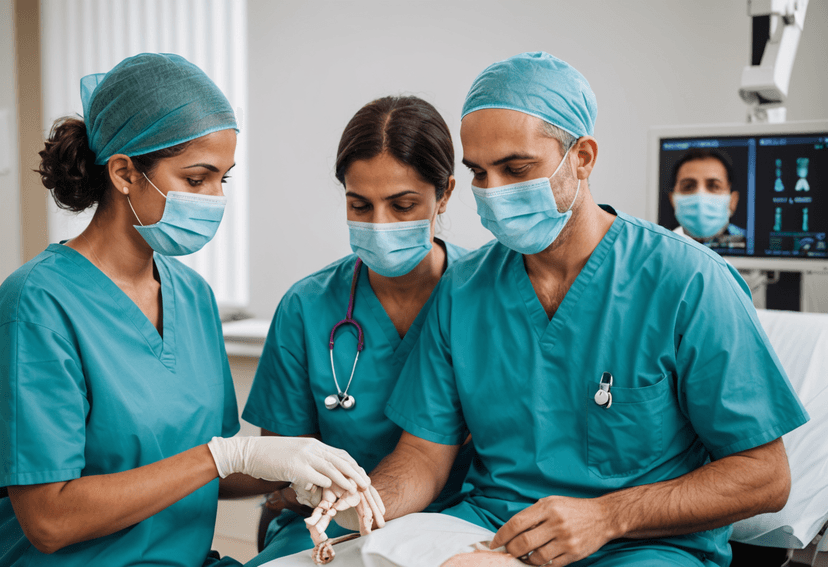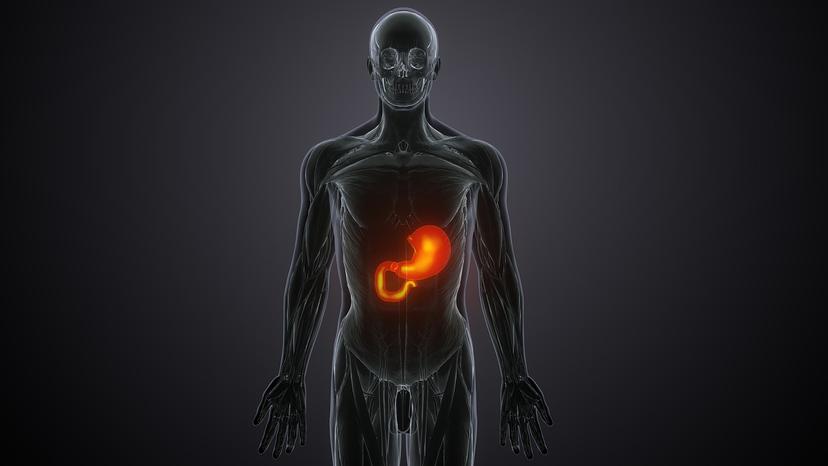
Lymphoma: Types and Treatments in the UAE
18 Jul, 2024
 Healthtrip Team
Healthtrip TeamTypes of Lymphoma
Lymphoma comes in two main types: Hodgkin Lymphoma (HL) and Non-Hodgkin Lymphoma (NHL). Each type has its own set of characteristics and treatment approaches.
Most popular procedures in India
1. Hodgkin Lymphoma (HL)
Hodgkin Lymphoma is identified by the presence of Reed-Sternberg cells, which are large, abnormal lymphocytes. There are two main subtypes of HL:
Wellness Treatments
Give yourself the time to relax
Lowest Prices Guaranteed!

Lowest Prices Guaranteed!
a. Classical Hodgkin Lymphoma (CHL): This is the most common form and includes four subtypes:
I. Nodular Sclerosis Hodgkin Lymphoma (NSHL): This is the most prevalent, especially among young adults. It’s characterized by large, cancerous lymph nodes that have areas of normal tissue and thickened lymph node capsules. Common symptoms include painless swelling of lymph nodes (usually in the neck, chest, or underarms), fever, night sweats, and weight loss.
ii. Mixed Cellularity Hodgkin Lymphoma (MCHL): Often seen in older adults and those with HIV, MCHL features a mix of different cell types. Symptoms are similar to NSHL and include painless swollen lymph nodes, fever, night sweats, and weight loss.
iii. Lymphocyte-Rich Hodgkin Lymphoma (LRHL): This rare subtype generally has a better prognosis. It has a high number of normal lymphocytes and fewer Reed-Sternberg cells. Symptoms might include swollen lymph nodes and systemic symptoms like fever and weight loss.
iv. Lymphocyte-Depleted Hodgkin Lymphoma (LDHL): The rarest and most aggressive form, often seen in older adults or those with HIV. It’s characterized by a lack of normal lymphocytes and an abundance of abnormal cells. Symptoms are more pronounced and include extensive lymphadenopathy and systemic symptoms.
b. Nodular Lymphocyte-Predominant Hodgkin Lymphoma (NLPHL): This rare subtype doesn’t have Reed-Sternberg cells. Instead, it has large cells called "popcorn cells." NLPHL usually has a slower progression and a better prognosis. Patients often present with painless swelling of lymph nodes, usually in the neck or armpit, and may experience fewer systemic symptoms.
2. Non-Hodgkin Lymphoma (NHL)
Non-Hodgkin Lymphoma includes a variety of lymphomas that don’t involve Reed-Sternberg cells. NHL can be divided into two main categories: B-cell lymphomas and T-cell lymphomas.
a. B-cell Lymphomas: This is the most common type of NHL and includes several subtypes:
i. Diffuse Large B-cell lymphoma (DLBCL): The most common type of NHL. It’s aggressive but often responds well to treatment. It’s characterized by rapidly growing lymph nodes, fever, night sweats, and weight loss. Patients may also experience swelling in the neck, armpit, or groin.
ii. Follicular Lymphoma (FL): A slow-growing type of lymphoma that can become more aggressive. It’s characterized by painless, swollen lymph nodes, often in the neck, armpit, or groin. Symptoms can also include fatigue and weight loss.
iii. Mantle Cell Lymphoma (MCL): A rare and aggressive form of NHL, often diagnosed at a later stage. It’s characterized by painless lymphadenopathy, fatigue, and gastrointestinal involvement. Intensive treatment is usually required.
iv. Burkitt Lymphoma: An extremely aggressive lymphoma commonly associated with the Epstein-Barr virus (EBV) in certain regions. It’s characterized by rapid tumour growth, often in the abdomen or jaw, along with systemic symptoms such as fever and weight loss. It requires immediate and intensive treatment.
b. T-cell Lymphomas: This group includes several aggressive subtypes:
i. Peripheral T-cell lymphoma (PTCL): A diverse group of aggressive lymphomas originating from mature T-cells. It’s characterized by generalized lymphadenopathy, fever, night sweats, and weight loss. Symptoms may also include skin rashes.
ii. Cutaneous T-cell lymphoma (CTCL): Primarily affects the skin, presenting as patches, plaques, or tumours. Symptoms include itchy, red skin lesions that can progress to tumour stages, leading to significant discomfort.
iii. Anaplastic Large Cell Lymphoma (ALCL): Can present as a systemic disease or primarily cutaneous form, characterized by large, anaplastic cells. Symptoms include swollen lymph nodes, skin lesions, fever, weight loss, and night sweats.
Understanding the different types of lymphoma is crucial for accurate diagnosis and effective treatment. Hodgkin Lymphoma and Non-Hodgkin Lymphoma each have various subtypes with distinct characteristics and symptoms. If you or someone you know is diagnosed with lymphoma, it’s important to consult with a healthcare provider to determine the specific type and develop a tailored treatment plan. Early diagnosis and appropriate treatment can significantly improve outcomes and quality of life for patients with lymphoma.
Diagnosis of lymphoma
Diagnosing lymphoma involves several steps to confirm the presence of the disease and understand its type and severity. Here’s how doctors typically diagnose lymphoma:
a. Medical History and Physical Examination: Doctors begin by discussing your medical history and conducting a thorough physical exam. They look for symptoms like swollen lymph nodes, fever, weight loss, and night sweats, which are common signs of lymphoma. These initial assessments help guide further tests.
b. Blood Tests: Blood samples are taken to check for signs of lymphoma, such as abnormal levels of certain proteins. While blood tests provide initial clues, they often need more tests for a definite diagnosis.
c. Imaging Studies: Tests like CT scans, PET scans, and MRIs create detailed images of your body’s internal structures. These help doctors identify any abnormal lymph nodes or organs affected by lymphoma. Imaging is crucial for understanding how far the cancer has spread and planning treatment.
d. Biopsy: If lymphoma is suspected, a biopsy is done to remove a small sample of tissue from a lymph node or affected area. This sample is examined under a microscope to confirm the diagnosis and determine the exact type of lymphoma (Hodgkin or Non-Hodgkin).
e. Bone Marrow Tests: Sometimes, doctors need to check if lymphoma has spread to the bone marrow. They do this by taking samples of bone marrow through aspiration (drawing out liquid marrow) and biopsy (taking a small piece of bone and marrow). These tests help in staging the disease and planning treatment.
f. Lymph Node Biopsy: When enlarged lymph nodes suggest lymphoma, a biopsy is performed to get tissue samples for detailed examination. This procedure confirms the presence of lymphoma, identifies specific cell characteristics, and guides treatment decisions.
Diagnosing lymphoma involves a thorough process of medical history, exams, tests, and biopsies. This careful approach ensures an accurate diagnosis, helps determine the type and stage of lymphoma, and allows doctors to plan the best treatment for each patient. Early diagnosis is crucial for starting treatment promptly and improving outcomes for those with lymphoma.
Treatments for Lymphoma in the UAE
- Established Year: 2012
- Location: 28th St - Mohamed Bin Zayed City - Abu Dhabi - United Arab Emirates, United Arab Emirates
About The Hospital:
- Total Number of Beds: 180ICU Beds: 31 (Including 13 Neonatal ICU and 18 Adult ICU Beds)
- Labour and Delivery Suites: 8
- Operation Theatres: 10 (Including 1 state-of-the-art Hybrid OR)
- Day Care Beds: 42
- Dialysis Beds: 13
- Endoscopy Beds: 4
- IVF Beds: 5
- OR Day Care Beds: 20
- Emergency Beds: 22
- Individual Patient Rooms: 135
- 1.5 & 3.0 Tesla MRI and 64-slice CT scan
- Luxury Suites: Royal Suites: 6000 sq. ft. each
- Presidential Suites: 3000 sq. ft.
- Majestic Suites
- Executive Suites
- Premier & Deluxe Rooms
- Designed to be a hub for tertiary and quaternary oncology treatment.
- Specializes in adult and pediatric subspecialties, long-term, and palliative care.
- Offers immunotherapy and molecularly targeted therapies.
- Provides state-of-the-art diagnosis and compassionate treatment.
- Offers exceptional support services for patients and their families.
- Burjeel Medical City in Abu Dhabi offers advanced care and expertise in cardiology, paediatrics, ophthalmology, oncology, IVF, gynaecology & obstetrics, orthopaedics & sports medicine, a dedicated Shoulder and Upper Limb Unit, Burjeel Vascular Centre, and bariatric & metabolic surgery. This state-of-the-art hospital provides comprehensive, top-quality healthcare services to patients, ensuring their unique medical needs are met with the highest level of care and expertise. Burjeel Medical City is committed to providing high-quality medical care in a comfortable and technologically advanced environment.
2. Mediclinic City Hospital
- Established Year: 2008
- Location: 37 26th St - Umm Hurair 2 - Dubai Healthcare City, Dubai, United Arab Emirates
About The Hospital
- Mediclinic City Hospital is a state-of-the-art healthcare facility. It is equipped with the latest technology and staffed by highly trained professionals.
- Number of Beds: 280
- Number of Surgeons: 3
- The hospital boasts 80 doctors and over 30 specialists.
- Neonatal Beds: 27
- Operating Rooms: 6, plus 3 daycare surgery units, 1 C-section OT
- Cardiac Catheterisation Laboratories: 2
- Endoscopy suites, fully equipped laboratory, emergency department, labour and post-natal wards.
- Advanced Medical Technology: PET/CT, SPECT CT, and 3T MRI.
- The hospital offers specialist-focused treatment in areas such as cardiology, radiology, gynaecology, trauma, nuclear medicine, endocrinology, and more.
- Mediclinic City Hospital offers specialities in Urology, Neurology, Gynaecology, General Surgery, Gastroenterology, E.N.T, Dermatology, Cardiology, Oncology, Orthopedics, Ophthalmology, Bariatric Surgery, Paediatric Neurology, Paediatric Oncology, and Paediatric Orthopaedics, staffed by top doctors in each field.
3. NMC Royal Hospital, Abu Dhabi
- Established Year: 1974
- Location: 16th St - Khalifa City SE-4 - Abu Dhabi - United Arab Emirates, United Arab Emirates
About The Hospital:
- NMC Royal Hospital is a premier healthcare facility in Abu Dhabi, equipped with advanced technology and staffed by medical professionals trained in global healthcare practices.
- It provides high-quality healthcare services to patients not only in the capital but also from across the UAE and GCC.
- Strategically located in Khalifa City, it serves the growing populations of various Abu Dhabi suburbs, including Al Raha, Mussafah, Mohammed bin Zayed City, Masdar City, Abu Dhabi International Airport, Shahama, and Yas Island.
- Total Number of Beds: 500
- ICU Beds: 53
- Number of Surgeons: 12
- The hospital features state-of-the-art critical care units, including a dedicated cardiac unit with round-the-clock intensivist cover.
- A team of over 90 doctors, including 32 consultants and 28 specialists, is primarily Western qualified, ensuring high medical standards.
- The medical program at NMC Royal Hospital focuses on Cardiac Sciences, Emergency Medicine & Critical Care, Mother and Child Health, Gastroenterology and Hepatology, and Neuro Sciences.
- The hospital boasts advanced medical technology, including a hybrid operating theatre, a 3 Tesla MRI unit, a 256-slice CT scanner, and an automated laboratory system.
- It has 53 critical care beds and offers the region's first NICU and PICU combination in the private sector.
- NMC Royal Hospital specializes in providing comprehensive clinical care, including a detailed chronic disease management program.
- The hospital offers a wide range of medical specialities, including Oncology, Orthopedics, Cardiology, Nephrology & Urology, ENT, and GI & Bariatric.
- NMC Royal Hospital, Abu Dhabi, is committed to delivering exceptional healthcare services and is a prominent healthcare destination in the region.
How can HealthTrip assist with your treatment?
If you're seeking Lymphoma Treatment, let HealthTrip be your compass. We support you throughout your medical journey with the following:
- Access to top doctors in 38+ countries and the largest health travel platform.
- Partnerships with 1500+ hospitals, including Fortis, Medanta, and more.
- Treatments in neuro, cardiac care, transplants, aesthetics, and wellness.
- Post-treatment care and assistance.
- Teleconsultations with leading doctors at $1/minute.
- Over 61K patients served.
- Access Top treatments and packages, such as Angiograms and many more.
- Gain insights from genuine patient experiences and testimonials.
- Stay updated with our medical blog.
- 24/7 unwavering support, from hospital formalities to travel arrangements or emergencies.
Hear from our satisfied patients
Related Blogs

Breast Cancer Treatment Options
Explore the various treatment options for breast cancer

Stomach Cancer Treatment Options: Surgery, Chemotherapy, and More
Explore the treatment options for stomach cancer with Healthtrip

Bone Marrow Transplant: What to Expect
A guide to the bone marrow transplant process, its risks,

Bone Cancer Treatment in the UK: Advanced Care for Patients from Russia
Bone cancer is a serious and challenging condition that requires

Esophageal Cancer Treatment in the UK: What Russian Patients Can Expect
Esophageal cancer presents significant treatment challenges due to its complexity

Stomach Cancer Treatment in the UK: Comprehensive Options for Patients from Russia
Stomach cancer, or gastric cancer, presents significant challenges and requires











